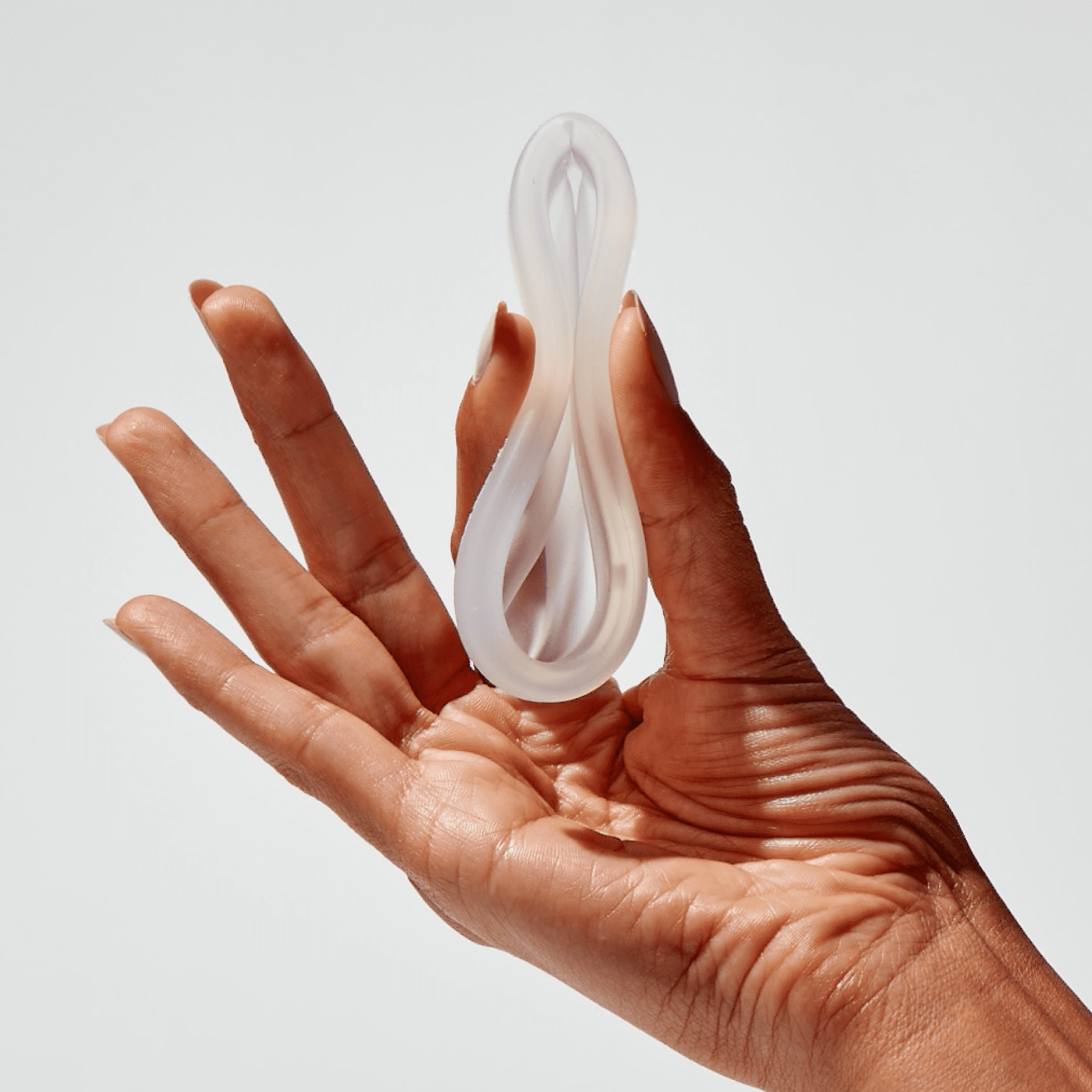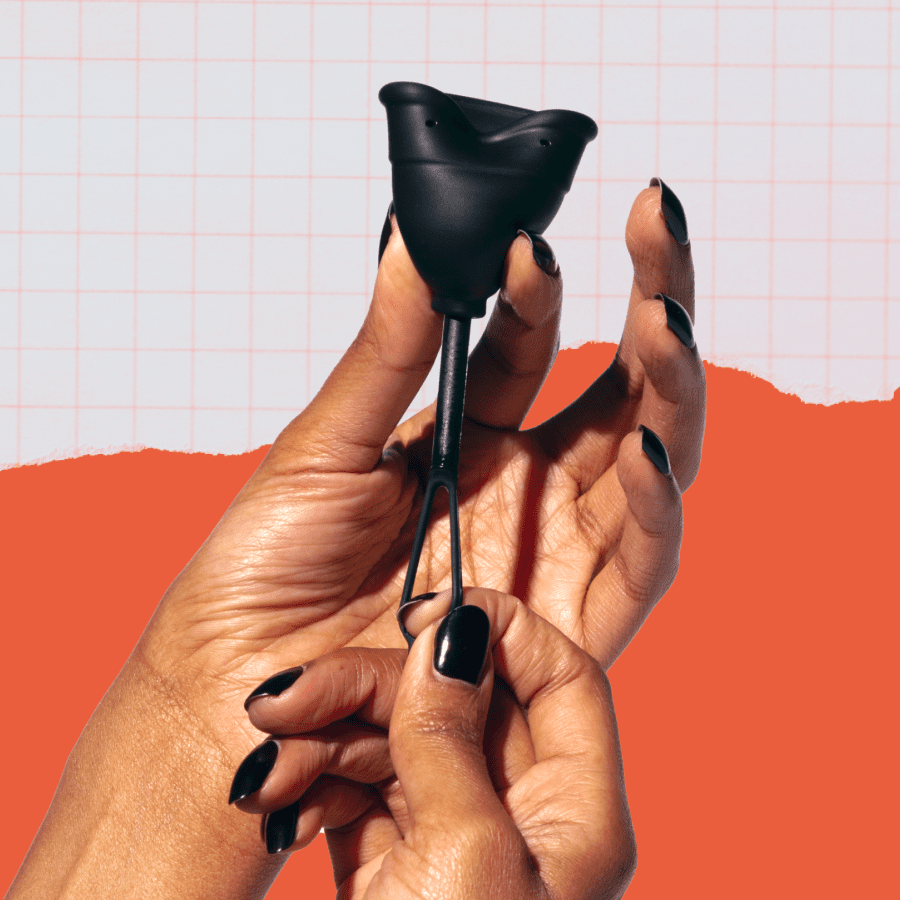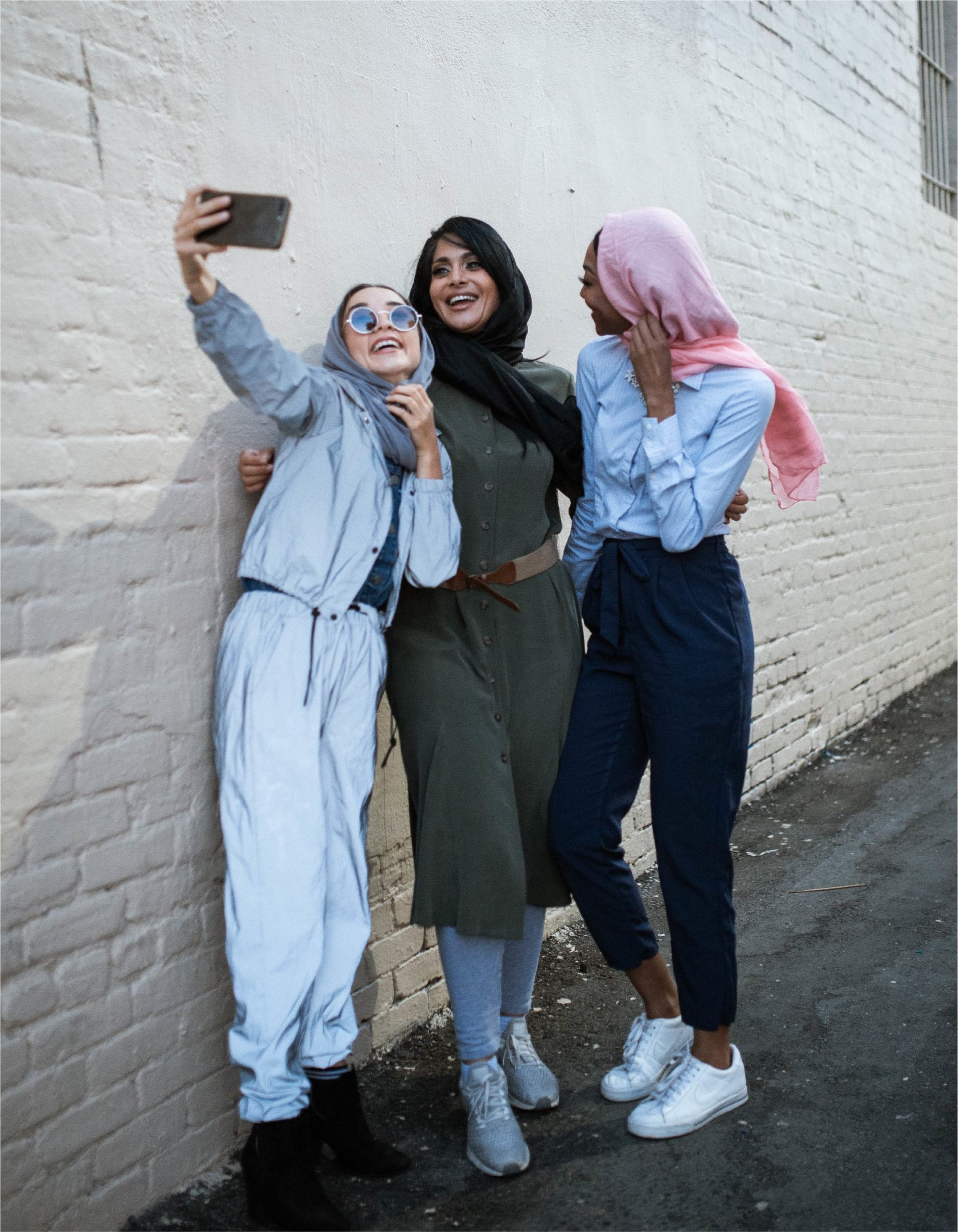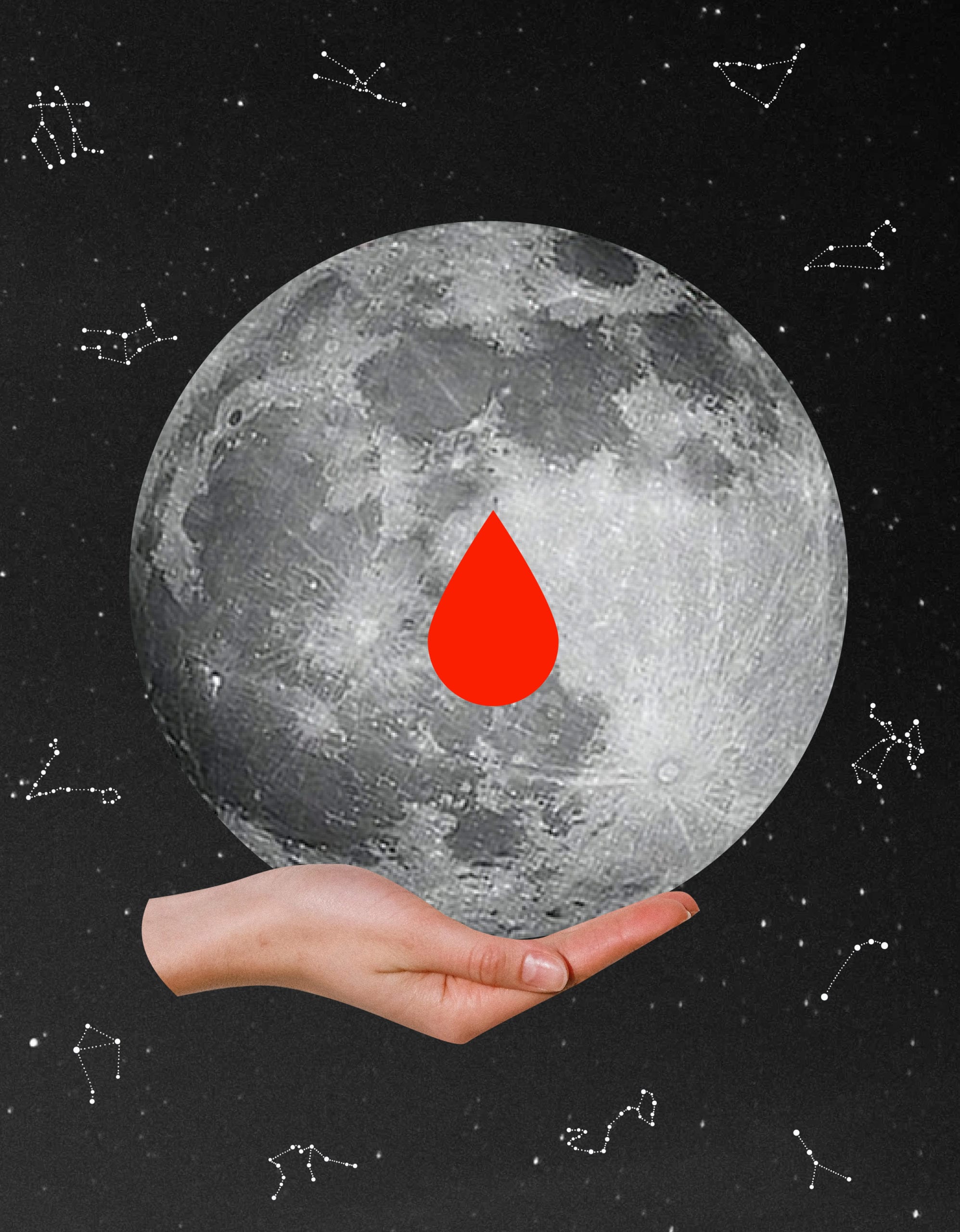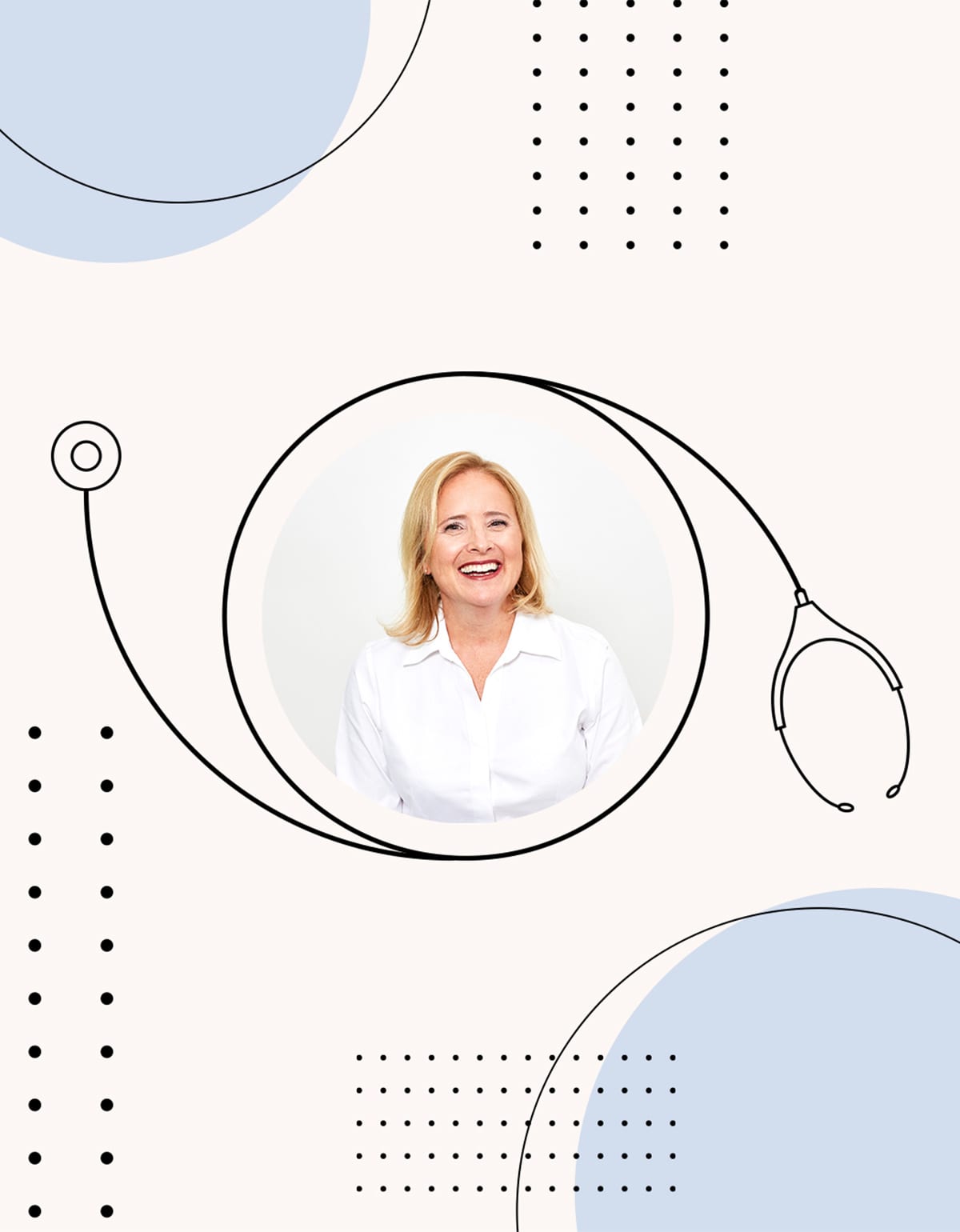What’s period syncing—and is it a real thing?
Is it just an urban legend, or might there be some truth to menstrual synchrony…
If you’ve spent any time living in the same household with another menstruator, you may have heard of “period syncing”. You might be wondering if period syncing is fact or fiction.
Maybe you’ve experienced this phenomenon too. I experienced it during my sophomore year of college when all my roommates’ cycles overlapped by the end of the semester. Perhaps you’ve seen that hilarious Modern Family episode. The one where Claire, Haley, and Alex all had their periods on a Leap Day, Phil’s favorite day ever.
Either way, we’re going to find out what’s fact and what’s fiction when it comes to menstrual synchrony. Read on for the final verdict.
Wait a sec: What does “menstrual synchrony” even mean?
“Them in there all together. If they stay in there too long, they’re gonna get on the same cycle. Wreak havoc on our plumbing.” –Dwight K. Shrute
The comment section under fan-favorite gynecologist Dr. Jen Gunter’s Tweet proves it. Opinions are pretty split on whether period syncing is a real thing.
Some swear up and down that women’s cycles always align when living with other people who menstruate. Others think any cycle overlap is merely a coincidence. Clearly, there’s no one reigning consensus about period syncing.
Before we get too ahead of ourselves, let’s break down the term ‘menstrual synchrony.’ Menstrual synchrony is the idea that when people who menstruate live in close proximity, their menstrual cycles will eventually line up. Under this theory, their periods onset right around the same time each month.


Menstrual synchrony doesn’t mean cycles are perfectly aligned (i.e. starting and stopping bleeding on the exact same day). For example, one menstruator may notice that their cycle starts one to two days after their roommate’s, but the general idea is that there will be some amount of period overlap.1
This means you both wind up battling it out over who gets that last Klondike bar in the freezer, every month.
Legit or just a coincidence: Here’s what we know
So, do women’s periods sync? In 1971, Nature published a paper that suggested that menstruators living in close proximity may cause menstrual patterns to align. Dubbed the McClintock Effect after the article’s author, Martha McClintock, the paper theorized that pheromones (chemicals released by the groin and/or armpits) influenced the hormones responsible for menstruation.
However: More recent studies do not support scientific evidence behind menstrual synchrony and today, most OB/GYNs would probably attribute any period synching to coincidence.2
So, why do periods sync up? Because they totally do, right?
The left-brain part of me hates to say it, but the most likely reason that periods sync up is because of…math. There are many studies around this occurrence. Although the McClintock study back in 1971 confirms menstrual synchronization is real, a later review unveiled factors that were not considered in the original study, disproving its existence.3
So, do women sync periods? It’s statistically likely that menstruators who live together will have some amount of period overlap. This is especially true if one person’s cycle is three weeks long and the other person’s is five weeks.
It’s worth noting that, thanks to recall bias, people are more likely to remember the times that their cycles DID converge with close friends, family members, or roommates than the times that they didn’t. There are also plenty of factors (i.e. stress, birth control, weight loss, over-exercising, etc.) that affect your cycle’s regularity (or lack thereof).


With the world we’re living in today, it seems like a perfectly regular menstrual cycle is becoming increasingly rare. Even as far back as 2004, menstrual cycle variability was found to be pretty widespread. A previous study performed that year found that 46% of participants had a cycle range (i.e. menstrual variability in length) of 7 days or more, and 20% had a cycle range of 14 days or more.4
So, it’s just all that irregularity that throws the mathematical odds in favor of menstrual synchrony. Sorry, Martha: Period syncing has absolutely nothing to do with the release of pheromones.5
Period Syncing and Alpha Female: Is there such a thing as an “Alpha” uterus?
Another popular theory in the realm of menstrual syncing is the concept of the “Alpha female.” Basically, it’s the idea that menstruators’ cycles will sync up with whomever the “Alpha” of the friend group is.
While this concept may seem semi-ridiculous and a tad conceited at first glance, Breanne Fahs, a women and gender studies professor at Arizona State University, wrote that this attitude reflects how we as humans think about group settings and social dynamics.6
In her study published in the Journal of Women’s Reproductive Health, she notes, “We’re a culture that really does think about things like dominance and hierarchy and social groups a lot.” Since these social interaction dynamics make up such a huge part of our day-to-day lives, it makes sense that we’d instinctively want to back a theory like period syncing as something biologically legit.
Fahs found that “women overwhelmingly endorsed the occurrence of menstrual synchrony both for themselves (90%) and for other women (95%).” She also uncovered four key themes that menstruators most often associated with their belief in period syncing:7
- Connection to and hierarchy among other women
- Menstrual synchrony as “magical” or “mysterious”
- Menstrual synchrony as part of human biology and animal-like
- Managing and overcoming negative experiences with menstruation
Among these four themes, Fahs highlighted the first and fourth as key to understanding why we’re so hell-bent on believing in period syncing.


Not just in Western culture but around the globe, there’s a centuries-long history of periods being stigmatized. Many people with uteruses grow up being told to associate menstruation with uncleanliness, that it’s something to hide or even to be ashamed of (or so the cultural discourse goes).
Perhaps banding together with your HBIC during your period helps us come to terms with some of those pent-up emotions. Fahs writes, “Menstrual synchrony offers one possible avenue to feel collective anger, and it highlights women’s feelings about mysticism, science, and close female relationships.”
Plus, we all know what it’s like to be around someone who determines the social vibe. It’s really not that wild to think their energy could *maybe* affect your period—even if it’s mostly a luck-and-chance sort of thing.
The Clue period syncing study
If you are still convinced that you and your best friend are legitimately, scientifically synced up, that’s okay. We love having friends who understand how bad cramps are, always order an extra-large pizza to prep for cycle day #1, and dole out charcoal face masks to help you fight that monthly war against hormonal acne.
But just so you know: There was, in fact, a comprehensive study performed in 2017 that took a deep dive into the period syncing controversy using a large menstrual cycle data set from 1,500 people who logged their periods in a cycle tracking app.


The makers of that app (Clue) partnered with Oxford University to conduct the 2017 study, which found that, out of the 360 pairs of menstruators, only 79 had cycle gaps that converged over their course of living together. In other words, only 22% of them had their periods at the same time. In that same vein, they also found that the pairs’ menstrual cycle length were more likely to diverge over time (rather than converge, i.e. sync up).
If you’re interested, check out this article to see all the other findings they collected about menstrual synchrony.8
Menstrual syncing, menses and lunar cycles
Another popular offshoot of the reproductive synchrony theory is that your period also syncs up with the lunar phases.
This theory likely came about hundreds of years ago. Even the words “menstruation” and “menses” are tied to the Greek and Latin words for moon: mensis.9 To this day, some cultures firmly believe that ovulation begins around the full moon and, similarly, that bleeding starts during the new moon.10
While a 2013 study found no connection between menstrual and lunar cycles, we fully support having a “moon day” in honor of your period. Learn more about the lunar influence in menstruation in this blog post covering five menstrual rituals around the world.


Period syncing takeaways
Statistically speaking there is probability that menstrual syncing does happen, but any period overlap with the people you’re living with or spending time with is completely coincidental. Multiple scientific studies have proven that period syncing has nothing to do with human pheromones, the moon phases, or your dorm roommate’s “Alpha” uterus.
That said, if your cycle aligns with a sister/cousin/roommate/bestie, why not celebrate? We all favor late-night group pharmacy runs to stock up on gummies, Hot Cheetos, heating pads, and gossip magazines. And if you happen to come across Flex® products in the period aisle next time, well…you know what to do.
© 2024 The Flex Company. All Rights Reserved.
- McClintock, M. K. (1971). Menstrual synchrony and suppression. Nature, 229(5282), 244-245. https://doi.org/10.1038/229244a0[↩]
- Myth or truth — Does your period really sync with close friends? (2020, July 13). Health Essentials from Cleveland Clinic. https://health.clevelandclinic.org/myth-truth-period-really-sync-close-friends/[↩]
- Beverly I. Strassmann, Menstrual synchrony pheromones: cause for doubt, Human Reproduction, Volume 14, Issue 3, March 1999, Pages 579–580, https://doi.org/10.1093/humrep/14.3.579[↩]
- Creinin, M. D., Keverline, S., & Meyn, L. A. (2004). How regular is regular? An analysis of menstrual cycle regularity. Contraception, 70(4), 289–292. https://doi.org/10.1016/j.contraception.2004.04.012[↩]
- Gunter, J. (2019, June 11). The myth of period syncing (Published 2019). The New York Times. https://www.nytimes.com/2019/06/06/well/the-myth-of-period-syncing.html[↩]
- Fetters, A. (2019, September 24). Why the myth of period syncing won’t go away. The Atlantic. https://www.theatlantic.com/family/archive/2019/09/period-syncing-almost-definitely-isnt-real/598714/[↩]
- Fahs, B. (2016). Demystifying menstrual synchrony: Women’s subjective beliefs about bleeding in tandem with other women. Women’s Reproductive Health, 3(1), 1-15. https://doi.org/10.1080/23293691.2016.1150132[↩]
- Do menstrual cycles sync? Unlikely, finds Clue data. (2017, March 8). Clue Period & Ovulation Tracker with Ovulation Calendar for iOS, Android, and watchOS. https://helloclue.com/articles/cycle-a-z/do-menstrual-cycles-sync-unlikely-finds-clue-data[↩]
- Menstrual | Origin and meaning of menstrual. (n.d.). Online Etymology Dictionary. https://www.etymonline.com/word/menstrual[↩]
- Do periods really sync with the moon? (2019, April 16). Clue Period & Ovulation Tracker with Ovulation Calendar for iOS, Android, and watchOS. https://helloclue.com/articles/cycle-a-z/myth-moon-phases-menstruation[↩]




